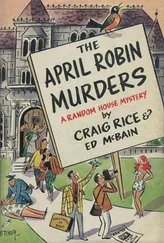Yet, seated definitely at the task, his pen in his hands, the paper spread out in front of him, Roger found himself quite unable to make a beginning. The paper remained blank, the pen executed a series of neat but meaningless squiggles round the edges of the blotting-pad, and Roger’s brain buzzed busily. It was not the difficulty of the job which prevented him from forming even the initial ‘Dear Sir’ of the letter; it was something quite different.
‘Hang it!’ burst out Roger suddenly aloud, hitting the desk in front of him a blow with his fist. ‘Hang it, it isn’t natural! ’
It was an old cry of his, and in the past it had led to important things. His own spoken words made Roger prick up his own ears. He threw the pen absently from him, drew out his pipe and settled down in his chair.
Ten minutes later he struck the match he had been holding during that period in his hand. Five minutes later he struck another. Three minutes after that he applied the third match to his pipe.
‘Now am I,’ communed Roger with himself, crossing his legs afresh and drawing deeply at his now lighted pipe, ‘am I getting a bee in my bonnet—am I getting hag-ridden by an idea—am I all that, or is there something funny in this business? I’m inclined (yes, most decidedly I’m inclined) to think there is. Let us, therefore, tabulate our results in the approved manner and see where they lead us.’
Picking up the pen again, he began to cover the blank sheet at last.
‘Assuming that Janet Manners = Unity Ransome:
(1) Janet was not only a dutiful but an affectionate daughter. She was at pains to write cheerful letters home every week. She went out of her way not to distress her father in any manner, even concealing from him the fact that she had found work on the stage, because he probably would not like it. Is it not, then, almost inconceivable that she should have deliberately taken her own life without at least preparing him towards not hearing from her for a considerable time? The only explanation is that she acted on a sudden, panic-stricken impulse.
(2) So far as one can see, Janet had no possible reason for suicide. She had been unusually lucky in getting good work. Her object was firstly to keep herself and so save expense at home, and secondly to contribute to the Vicarage household upkeep. She had achieved the first, and she was on her way to achieving the second. Not only had she no reason for killing herself, but she had every reason not to do so. In short, on the facts as known, the only explanation for Janet’s suicide is that she suddenly went raving mad. This is in accord with the panic-stricken impulse, and both show that all the facts are not known.
(3) We know that Janet did commit suicide, because she tells us so herself. But in what a very stereotyped formula! Would a girl who had the initiative to leave a country parsonage and go on the stage express herself, in a note of such importance, in such a very hackneyed way? And what was she “sick and tired” of? Again, this can only mean that we do not know all the facts.
(4) Why did Janet not sign that note? The omission is more than significant; it is unnatural. To sign such a note as that, or at the least to initial it, is almost a sine qua non . There seems no obvious explanation of this, except, possibly, frantic panic.
(5) What do we know of Janet? That she was a young woman of considerable character and determination. Young women of considerable determination do not commit suicide. Moreover, allowing for a father’s prejudice, her photograph shows clearly that Janet was not a suicide type. Once more one is driven to the conclusion that events of enormous importance have not yet come to light.
(6) Janet hanged herself with her own stockings. In the name of goodness, why? Had she nothing more suitable? In fact, Janet’s method of suicide is more than strange; it is unnatural. A girl bent on suicide would adopt hanging as a very last resource. Men hang themselves; girls don’t. Yet Janet did. Why?
(7) Is Roger Sheringham seeing visions? No, he isn’t. Then what is he going to do about it?— Jolly well find out what had really been happening to that poor kid!’
Roger put down his pen and read through what he had written.
‘Results tabulated,’ he murmured. ‘And where do they lead us, eh? Why, to Miss Moira Carruthers, to be sure.’
He put on his hat and hurried out.
CHAPTER III
MISS CARRUTHERS IS DRAMATIC
IT was with no definite plan in his mind, or even suspicion, that Roger jumped into a taxi and caused himself to be conveyed to Sutherland Avenue. All he knew was that here was mystery; and where mystery was, there was something in his blood that raised Roger’s curiosity to such a point that nothing less than complete elucidation could lower it. The affairs of Janet Manners had, he acknowledged readily, nothing whatever to do with himself, and it was very probable that their owner, had she been alive, would very much have resented the poking of his nose into them. He appeased his conscience (or what served him on these occasions for a conscience) by pretending that his real object in making the journey was to acquire positive proof that Unity Ransome really was Janet Manners before he wrote to Dorsetshire. He did not deceive himself for a moment.
His taxi stopped before one of those tall, depressed-looking buildings which line Sutherland Avenue, and a tiny brass plate on the door-post informed him that Miss Carruthers lived on the fourth floor. There was no lift, and Roger trudged up, to find, with better luck than he deserved, that Miss Carruthers was at home. Indeed, she popped out of a room at him as he reached the top of the stairs, for the flat had no front-door of its own.
Chorus-girls (or chorus ladies, as they call themselves nowadays) are divided into three types, the pert, the pretty and the proud, and of these the last are quite the most fell of all created beings. Roger was relieved to see that Miss Carruthers, with her very golden hair and her round, babyish face, was quite definitely of the pretty type, and therefore not to be feared.
‘Oh!’ said Miss Carruthers prettily, and looked at him in dainty alarm. Strange men on her stairs were, it was to be gathered, one of the most terrifying phenomena in Miss Carruthers’ helpless young life.
‘Good afternoon,’ said Roger, suiting his smile to his company. ‘I’m so sorry to bother you, but could you spare me a few minutes, Miss Carruthers?’
‘Oh!’ fluttered Miss Carruthers again. ‘Was it—was it very important?’
‘I am connected with The Daily Courier,’ said Roger.
‘Come inside,’ said Miss Carruthers.
They passed into a sitting-room, the furniture of which was only too evidently supplied with the room. Roger was ensconced in a worn armchair, Miss Carruthers perched charmingly on the arm of an ancient couch. ‘Yes?’ sighed Miss Carruthers.
Roger came to the point at once. ‘It’s about Miss Ransome,’ he said bluntly.
‘Oh!’ said Miss Carruthers, valiantly concealing her disappointment.
‘I’m making a few enquiries, on behalf of The Courier,’ Roger went on, toying delicately with the truth. ‘We’re not altogether satisfied, you know.’ He looked extremely portentous.
Miss Carruthers’ large eyes became larger still. ‘What not with?’ she asked, her recent disappointment going the same way as her grammar.
‘Everything,’ returned Roger largely. He crossed his legs and thought what he should be dissatisfied with first of all. ‘What was her reason for committing suicide at all?’ he demanded; after all, he was more dissatisfied with that than anything else.
‘Well, reely!’ said Miss Carruthers. And then she began to talk.
Читать дальше












